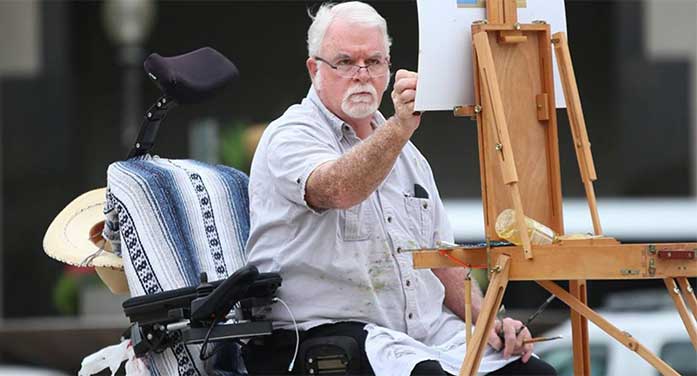University of Alberta researcher Sanjay Kalra is leading a team of investigators awarded $2.85 million from Brain Canada to create a platform that will help ALS researchers better understand the complex disease and find ways to treat patients with a more personalized approach.

Sanjay Kalra
ALS, often referred to as Lou Gehrig’s disease, is a neurological disease that affects nerve cells and slowly severs the communication between the brain and the body’s muscles. One of the biggest challenges to treating the disease is that ALS varies from person to person, which can lead to delayed diagnosis and treatment, failure in clinical trials and an inability to predict treatment response and prognosis.
The Comprehensive Analysis Platform to Understand, Remedy, and Eliminate ALS (CAPTURE ALS) seeks to tackle this challenge by gathering a complete biological picture for each ALS patient. Biological data gathered will give researchers added insight that can then guide their treatment of the disease, allowing them to offer patients more personalized options.
CAPTURE ALS will expand on work already being done by the Canadian ALS Neuroimaging Consortium (CALSNIC), which is developing and validating imaging-based biomarkers that could potentially help to identify the severity of ALS in patients, track the disease’s progression and find more effective treatments.
“CAPTURE ALS is creating a biorepository and operating it under an open-science framework. Like CALSNIC, the new platform will collect clinical, imaging and speech data in a standardized fashion across all sites, but additionally, will also collect biofluids such as blood and cerebrospinal fluid,” said Kalra, who is the director of CALSNIC, a professor in the Division of Neurology and a member of the Neuroscience and Mental Health Institute.
“The harmonization of standard operating procedures across all sites is important, so there can be uniformly high-quality data and materials,” Kalra noted. “Then, all of this will be available to researchers globally.”
The platform brings together researchers on an international scale with the ultimate aim of better understanding the challenges of diagnosing and treating ALS. The Clinical Biological Imaging and Genetic Repository (C-BIGR) at the Montreal Neurological Institute will house data and materials accessible to researchers involved with the platform, and the research team members are engaged in multidisciplinary work with expertise in everything from imaging to artificial intelligence.
Along with Kalra, the team includes U of A researchers Wendy Johnston, professor in the Division of Neurology, and Russ Greiner, professor in the Department of Computing Science and member of both the NMHI and the Cancer Research Institute of Northern Alberta (CRINA). Kelvin Jones, associate professor in the Faculty of Kinesiology, Sport, and Recreation, is a co-investigator leading the development of the electrophysiological arm of the project.
“A key principle of this work is the bringing together of this multidisciplinary group,” said Kalra. “For example, basic researchers have a need for highly characterized materials (imaging, blood, cerebrospinal fluid) and independently do not have access to that. Clinicians are the ones seeing the patients and can participate by co-ordinating the deep phenotyping and collection of data and biofluids. The two must talk to understand each other’s needs and perspective on the disease.”
According to Kalra, there are many benefits of this type of collaborative, multidisciplinary research and open framework, including increased availability of and access to materials, greater visibility for the research and stronger collaboration between researchers, all of which can lead to more rapid discoveries.
CAPTURE ALS is in the development stage and continues to expand, with the first participant set to enrol in late 2021.
“Early experiments are being planned and grants have already been submitted to utilize and increase the scope of the platform,” said Kalra.
With the launch of CAPTURE ALS made possible by the Brain Canada grant, the plan is to enrol 100 patients over the next two to three years and create a robust platform to aid researchers in their study of the disease.
The award includes matching funds from ALS Canada and two industry partners, Regeneron and Alnylam.
| By Adrianna MacPherson
This article was submitted by the University of Alberta’s Folio online magazine. The University of Alberta is a Troy Media Editorial Content Provider Partner.
© Troy Media
Troy Media is an editorial content provider to media outlets and its own hosted community news outlets across Canada.


